Microneedling Aftercare: Dos & Don’ts, Side Effects, & Treatment
If you are considering this treatment, follow the necessary steps for the safest and best results.
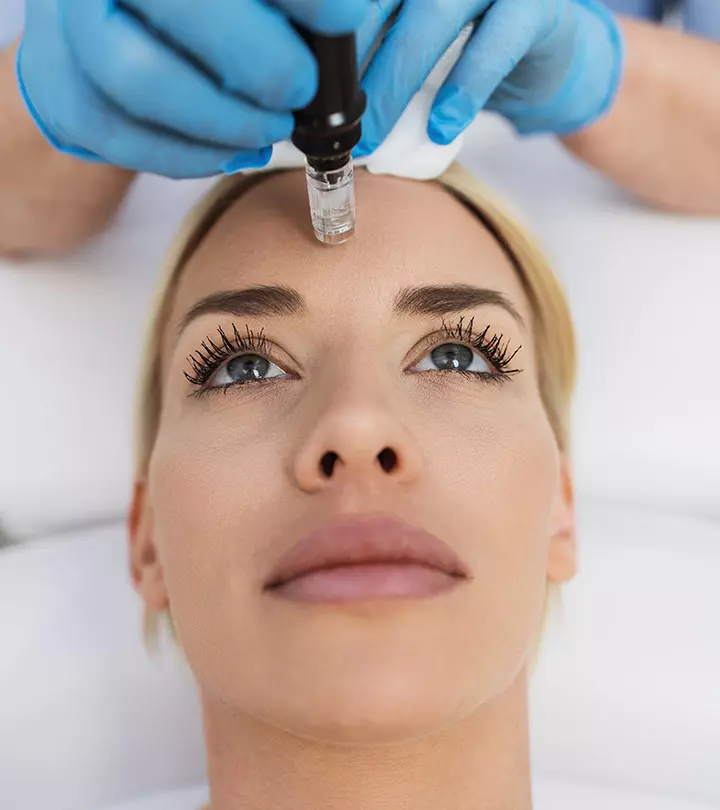
Image: Shutterstock
Microneedling, also called induction therapy, is a popular dermatological procedure that helps improve blood circulation and collageni The main structural protein responsible for the structure and function of connective tissues, bones, skin elasticity, and stretchiness. production (1). Though most of us know about it, many are unaware of the microneedling aftercare process.
During microneedling, the skin is punctured to stimulate collageni The main structural protein responsible for the structure and function of connective tissues, bones, skin elasticity, and stretchiness. production and fade acne, scars, stretch marks, rosaceai A common, chronic inflammatory skin condition that causes small, pus-filled red bumps on the face. , wrinkles, and tighten sagging skin. So, one must take necessary aftercare measures to help the skin heal after the procedure. It is also used to help in the transdermal delivery of drugs (2).
 Trivia
TriviaThis article discusses the aftercare maintenance tips you need to follow after microneedling and the potential side effects of the procedure. If you wish to get microneedling, it is best to know everything about it before the appointment. Keep reading.
In This Article
What To Expect After A Microneedling Procedure?
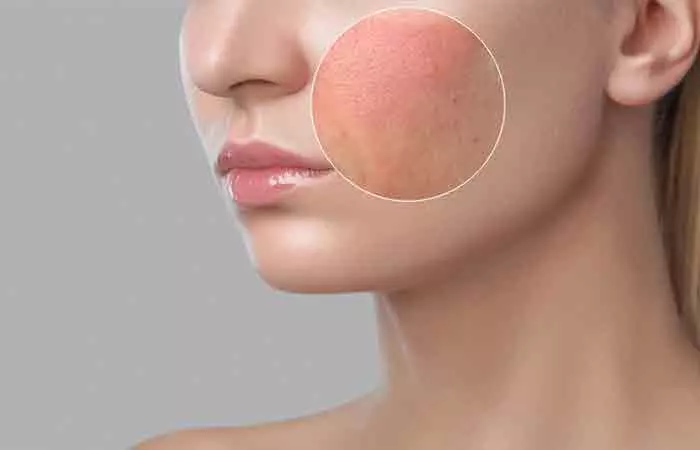
Here is what you can expect after a microneedling procedure:
- Your skin might appear slightly red. This redness usually will subside within 24 hours. Avoid using makeup to cover the redness up or hide it.
- You might feel mild pain as the numbing agent wears off. However, the pain will subside soon.
- You might feel your skin has become dry and flaky. This is absolutely normal after a microneedling procedure.
- The microneedling procedure involves pricking your skin with a minute needle. Hence, you also may notice small bleeding spots in some places.
- Your skin may also peel after the microneedling procedure (up to a week). This is normal. This indicates your skin is renewing.
- Around four to five days after the procedure, your skin will begin to settle down and glow. But your skin would still need immense care.
- Your skin can become tight post-treatment. This tightness will reduce in one to two days.
 Did You Know?
Did You Know?The following sections list certain dos and donts that can help with your skin recovery after a microneedling procedure.
Key Takeaways
- Microneedling is a dermatological procedure commonly used to treat several skin disorders.
- Your skin will begin to settle and brighten four to five days after the procedure. However, your skin would still require proper attention and care.
- Microneedling, like any surgical technique, can lead to side effects such as erythema, post-inflammatory hyperpigmentation, acne exacerbation, herpesi A viral infection that causes blister-like, contagious sores, most often around the mouth and or on the genitals. reactivation, systemic hypersensitivity, and local infection.
Microneedling Aftercare: The Dos and Dont’s
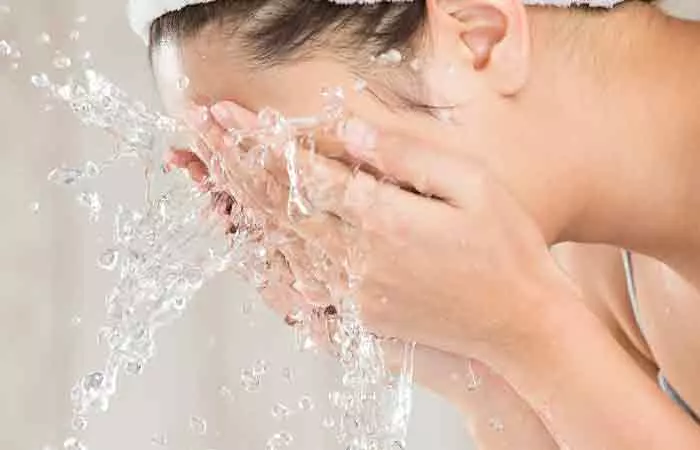
- Always clean your skin with lukewarm water and a gentle face cleanser. The skin might be slightly tender after the treatment. Hence, you must be very gentle while applying and washing away the cleanser.
- Ensure your hands are clean before touching your face.
- If your skin feels dry, apply the skin hydrant gel (recommended by your doctor) to hydrate your skin and prevent any flaking or irritation.
- A topical antibiotic cream might be prescribed to prevent any skin infections during your healing phase.
- Stay away from makeup and other perfumed or scented face products for at least 72 hours after your procedure. Such products may irritate raw skin.
- Always use clean tools and products when applying serums or creams to avoid bacteria and prevent infections.
- Avoid sun exposure for at least a week after your microneedling procedure. If you have to go out, use a high SPF, chemical-free sunscreen.
- Avoid swimming and tanning for one to two weeks after your procedure. The chlorine in the pool and the tanning agents can irritate your skin.
- Avoid any skincare products meant for exfoliation. You do not want to scrub away newly formed, raw skin.
- Keep your skin sweat-free and avoid any physical activities for a few days. The salts in the body sweat can irritate and further dry your skin out. You also may want to avoid exercising for a few days after the procedure.
Inflammation following a microneedling procedure is a necessary evil and an integral part of the healing process.
After the procedure, your skin may take about two weeks to heal and rejuvenate. In some cases, it also may take about 6 to 8 months. Burn scars can take much longer to respond to the microneedling treatment.
Morgan Reed Parlett, a YouTuber, shares her experience with microneedling in her video. She discusses getting the treatment for acne scarring, starting with applying numbing cream, the actual microneedling process, and the post-treatment care. She said, “I might have just rinsed it with water, I was patting it dry being really gentle ‘cause my skin was sore. As far as the aftercare goes, I applied the gel that they gave me. That felt really good on my skin– like I said it felt like a bad sunburn, so putting gel felt really good on my skin (i).”
 Quick Tip
Quick TipWe will now look at the side effects of microneedling.
Are There Any Side Effects Of Microneedling?
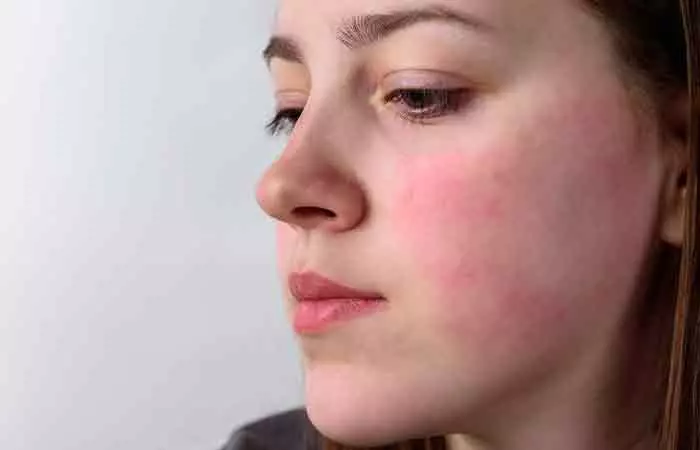
While microneedling for acne scars stimulates collagen production to reduce scarring, its advanced version called rf microneedling, enhances the effects by using radiofrequency energy for deeper skin rejuvenation. Thus, it is a popular option for many. However, both procedures may come with their own set of drawbacks. Just as with any surgical procedure, microneedling can also cause adverse effects (3):
- Erythema
This is a temporary effect wherein the treatment site becomes red and swollen. This skin redness after microneedling usually resolves by itself within 48 hours (4).
- Post-Inflammatory Hyperpigmentation
When the needles used in the microneedling procedure go beyond the designated depth, they irritate the pigment-forming cells in the skin (also called melanocytes).
This can result in inflammation post the treatment procedure and subsequent post-inflammatory hyperpigmentationi A common, harmless condition in which you observe dark patches of the skin due to excess melanin (natural skin pigment) production. . This hyperpigmentationi A common, harmless condition in which you observe dark patches of the skin due to excess melanin (natural skin pigment) production. is usually transient and resolves by itself.
- Aggravation Of Acne
The skin tends to become more sensitive after the microneedling procedure. It may also cause or aggravate acne in individuals with a history of acne breakouts.
- Reactivation Of Herpes
Performing microneedling in individuals with active herpesi A viral infection that causes blister-like, contagious sores, most often around the mouth and or on the genitals. is not recommended. In individuals with a history of oral herpesi A viral infection that causes blister-like, contagious sores, most often around the mouth and or on the genitals. , microneedling may increase the risk of cold sores. In such cases, the dermatologist will usually prescribe an antiviral for one week post-treatment. If a microneedling procedure is planned in someone with active herpesi A viral infection that causes blister-like, contagious sores, most often around the mouth and or on the genitals. , the treatment is postponed until the infection subsides.
- Systemic Hypersensitivity
Local or systemic hypersensitivity is observed when topical products are applied before the microneedling procedure. The immunogenic components from these products may enter the dermis and cause hypersensitivity (5). They can also cause an allergic reaction.
- Local Infection
Infections in the microneedling aftercare phase are less common but are characterized by swelling, pus, and edema on the face.
The skin may also get irritated and take a longer time to heal. Infection following a microneedling procedure can occur due to bacterial, fungal, or viral infections at the treatment site.
Tram track effect
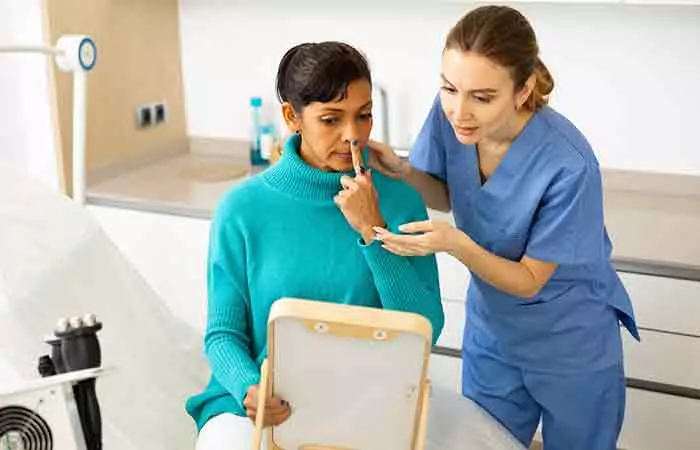
This is a type of acute erythema observed when excess pressure is applied during the microneedling procedure (or when larger needles are used) (6).
It is important you be informed of these adverse effects of microneedling. Most of these subside with time and can be prevented with the right precautions. However, there could be times when you may have to visit your doctor.
When Should You See A Doctor?

Microneedling is a low-risk dermatologic procedure that requires you to follow easy, simple aftercare steps. However, in some cases, the adverse effects may not subside and may require you to visit your doctor. These include:
- Fever of over 100o F after the procedure
- Hives or allergic rashes
- Nausea
- Yellow or green discharge from the treatment site on the face
- Bleeding or pus discharge
- Headaches
Infographic: A Quick Guide To Microneedling
Collageni The main structural protein responsible for the structure and function of connective tissues, bones, skin elasticity, and stretchiness. induction therapy, also called microneedling, is characterized by tiny needles that repeatedly puncture the skin to stimulate collageni The main structural protein responsible for the structure and function of connective tissues, bones, skin elasticity, and stretchiness. production. This is considered a relatively inexpensive cosmetic procedure to help manage scars, stretch marks, and even alopecia.
In the infographic below, learn more about microneedling, how it helps, who can benefit from it, and who should avoid this procedure.

Illustration: StyleCraze Design Team
Microneedling is a cosmetic procedure in which small needles are used to puncture the skin and boost the production of collageni The main structural protein responsible for the structure and function of connective tissues, bones, skin elasticity, and stretchiness. . To ensure your skin heals properly, you should follow the instructions your doctor provides for micro-needling aftercare. You may experience dry skin, slight redness, and pain after the procedure, which is normal and subsides after 24 hours. Ensure you follow the right skincare regimen on a regular basis. Wash your face with lukewarm water and a gentle cleanser and avoid swimming for two weeks till your skin heals. You may experience adverse effects after the procedure such as infection and an acute form of swelling called the tram track effect. Consult your doctor if you develop any adverse effects.
Take note of the insights discussed in this post. Follow your doctors instructions carefully. With the right measures, your skin can show recovery much faster.
Frequently Asked Questions
How soon can I wash my face after microneedling?
You should wait a few hours after microneedling to wash your face. Ensure that you use a gentle cleanser and lukewarm water to wash your face.
Can I use vitamin C serum after microneedling?
Do not use vitamin C immediately after microneedling as it may cause skin irritation. Wait for 2 to 3 days before using a vitamin C serum.
Should you moisturize after microneedling?
Yes. You can use a gentle moisturizer instead of your regular moisturizer to keep your skin hydrated and nourished after microneedling.
What should I do if I experience excessive redness?
Apply a soothing moisturizer or a clean cold compress to the area. If the redness persists, worsens, or is paired with additional symptoms like tenderness, consult your dermatologist immediately.
Personal Experience: Source
StyleCraze's articles are interwoven with authentic personal narratives that provide depth and resonance to our content. Below are the sources of the personal accounts referenced in this article.
i. MY FIRST MICRONEEDLING EXPERIENCE & WHAT TO EXPECT //ACNE SCAR TREATMENThttps://www.youtube.com/watch?v=wlXy0FBPDJs
References
Articles on StyleCraze are backed by verified information from peer-reviewed and academic research papers, reputed organizations, research institutions, and medical associations to ensure accuracy and relevance. Read our editorial policy to learn more.
- Review of Applications of Microneedling in Dermatology,
https://www.ncbi.nlm.nih.gov/pmc/articles/PMC5556180/ - Microneedle for transdermal drug delivery: current trends and fabrication,
https://www.ncbi.nlm.nih.gov/pmc/articles/PMC7931162/ - Microneedling: Advances and Widening Horizons-,
https://www.ncbi.nlm.nih.gov/pmc/articles/PMC4976400/ - Skin Cell Proliferation Stimulated by Microneedles- ,
https://www.ncbi.nlm.nih.gov/pmc/articles/PMC3921236/ - Facial allergic granulomatous reaction and systemic hypersensitivity associated with microneedle therapy for skin rejuvenation,
https://pubmed.ncbi.nlm.nih.gov/24258303/ - Tram Track Effect After Treatment of Acne Scars Using a Microneedling Device,
https://journals.lww.com/dermatologicsurgery/Citation/2012/07010/_Tram_Track_Effect__After_Treatment_of_Acne_Scars.27.aspx
Read full bio of Dr. Sruthi Alla
Read full bio of Annie Jangam
Read full bio of Ramona Sinha
Read full bio of Monomita Chakraborty






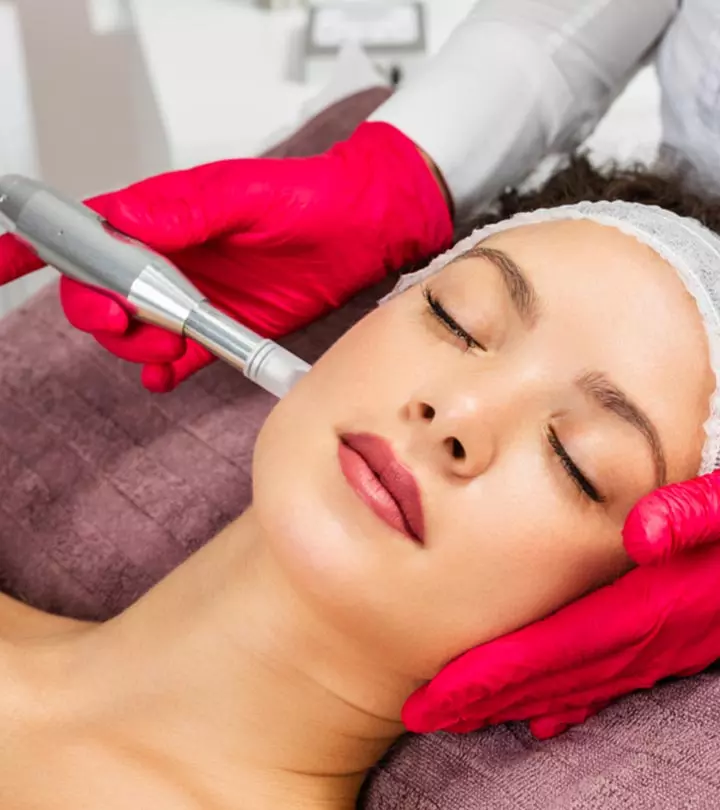
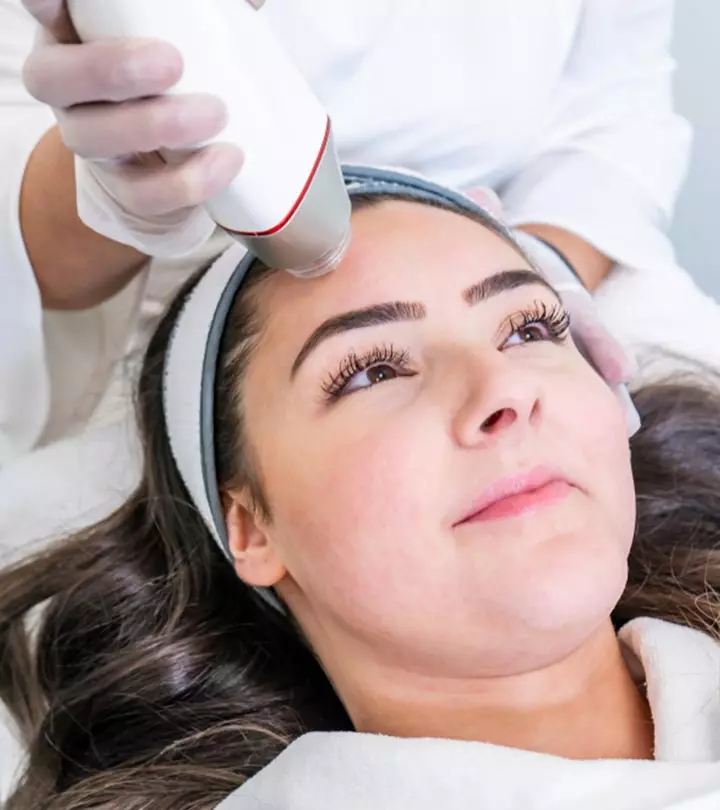
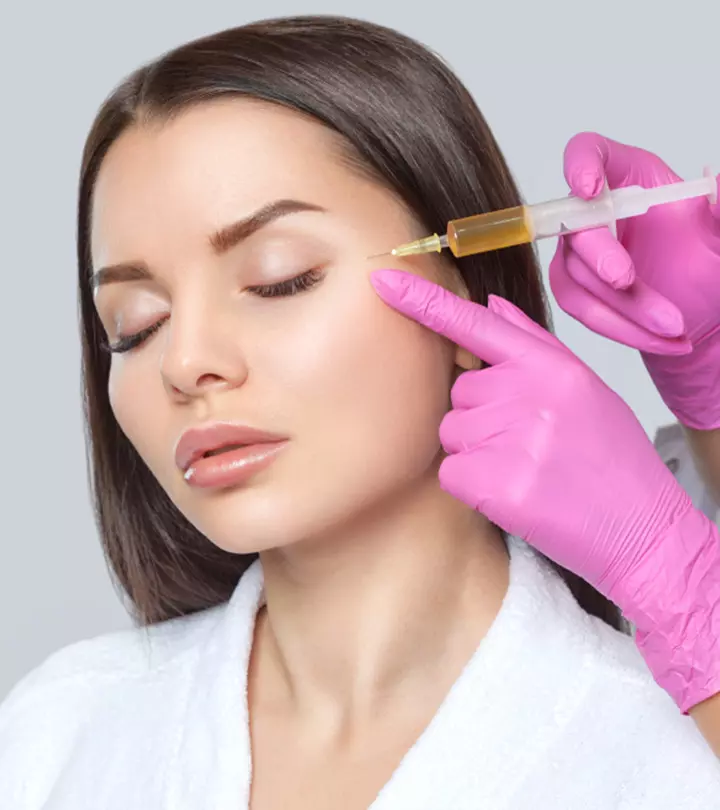

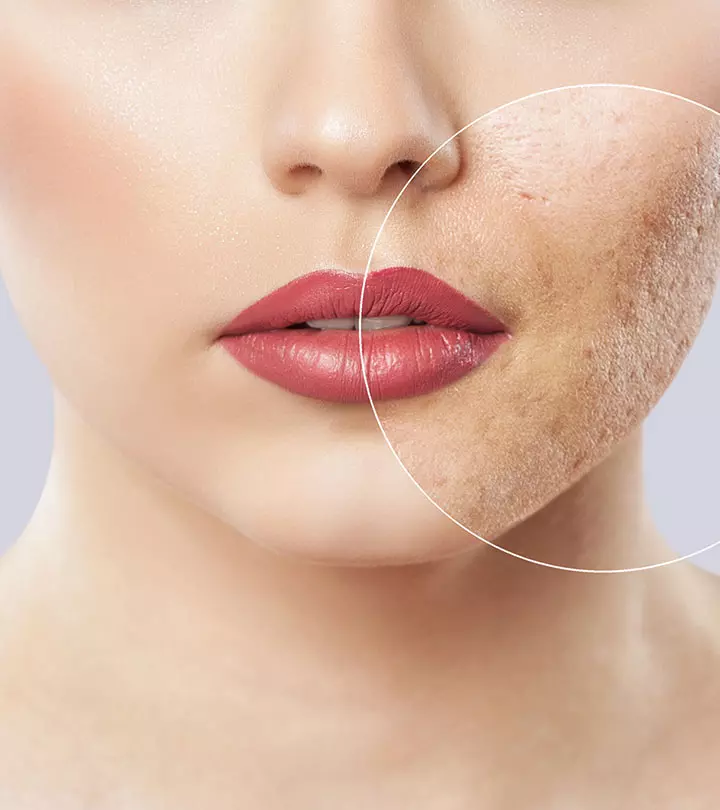
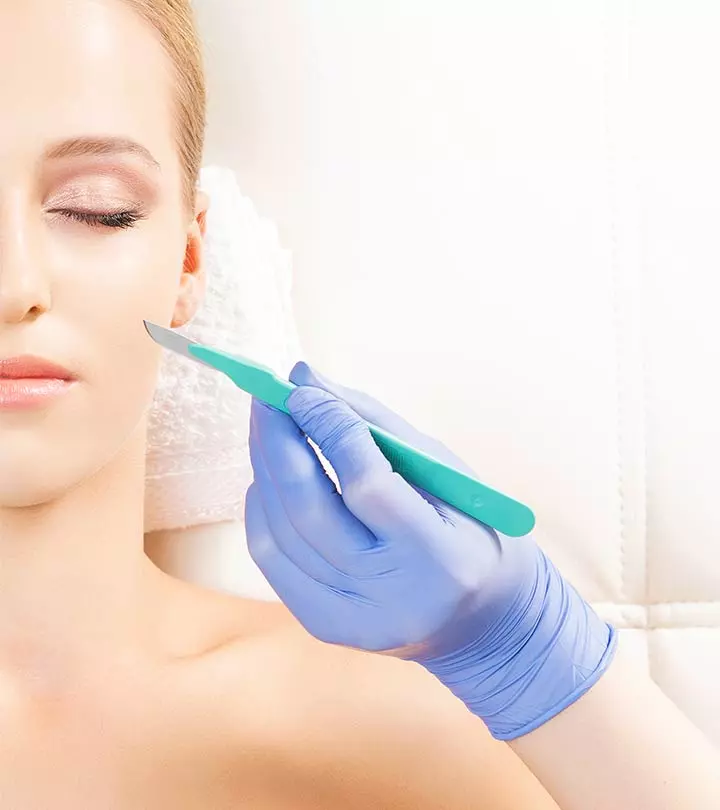
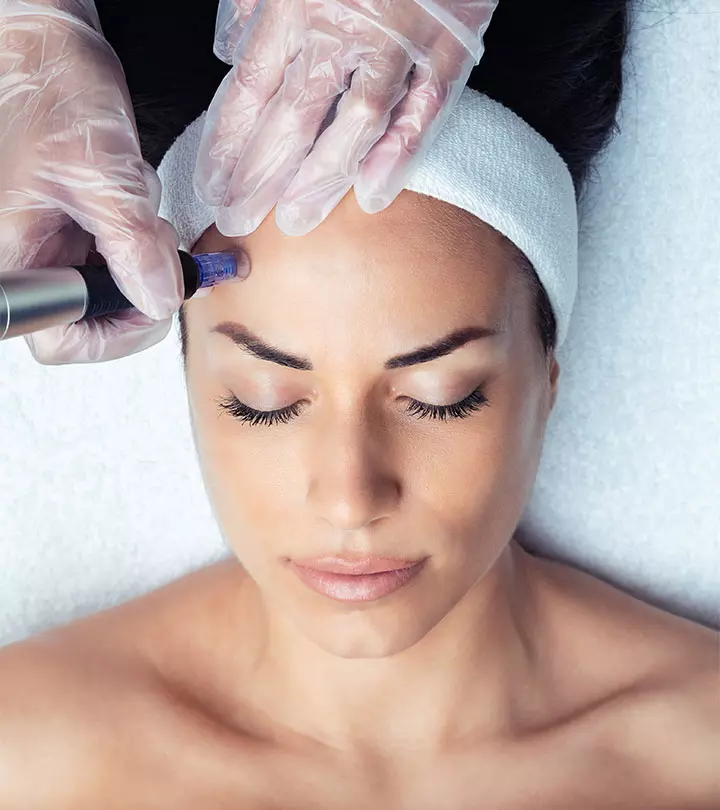
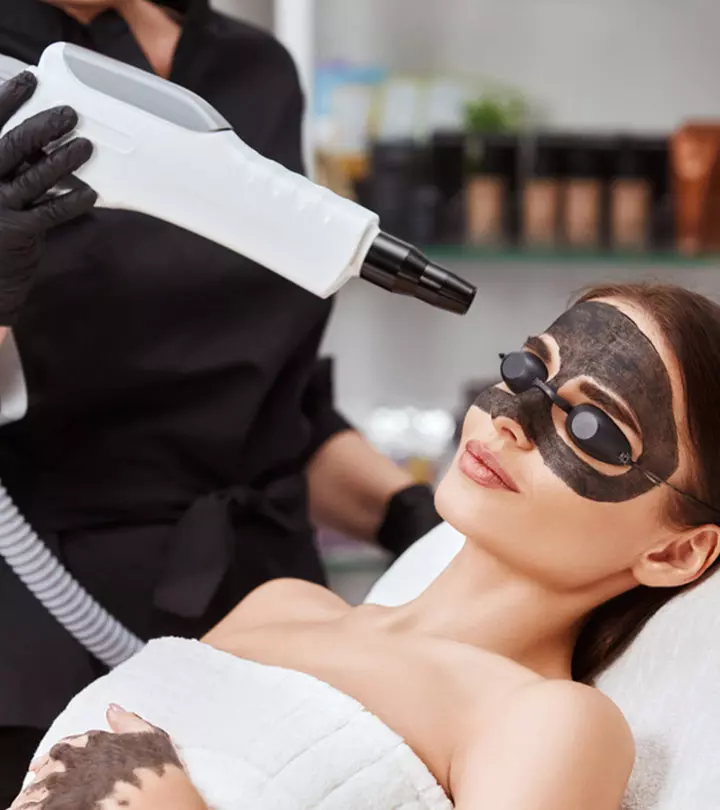
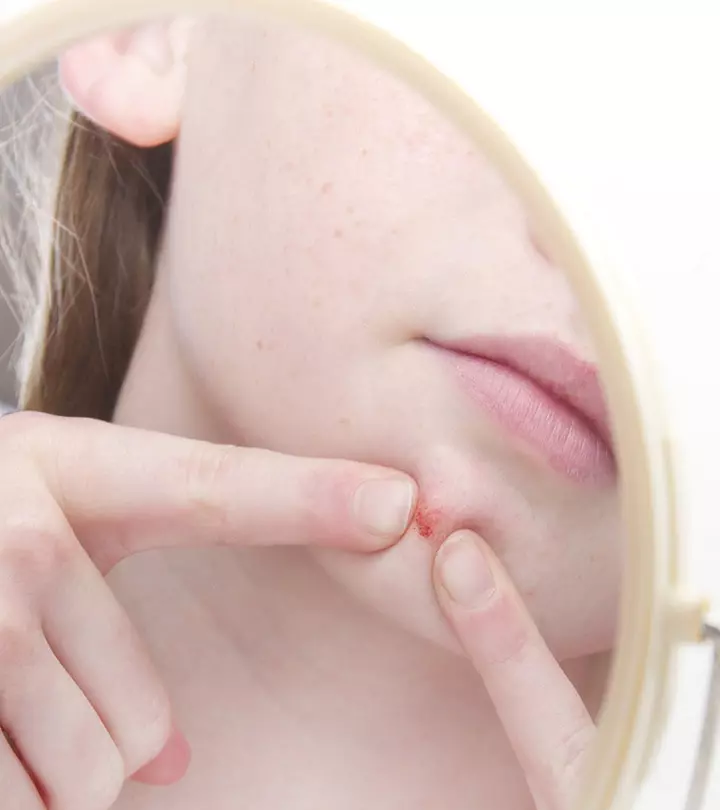


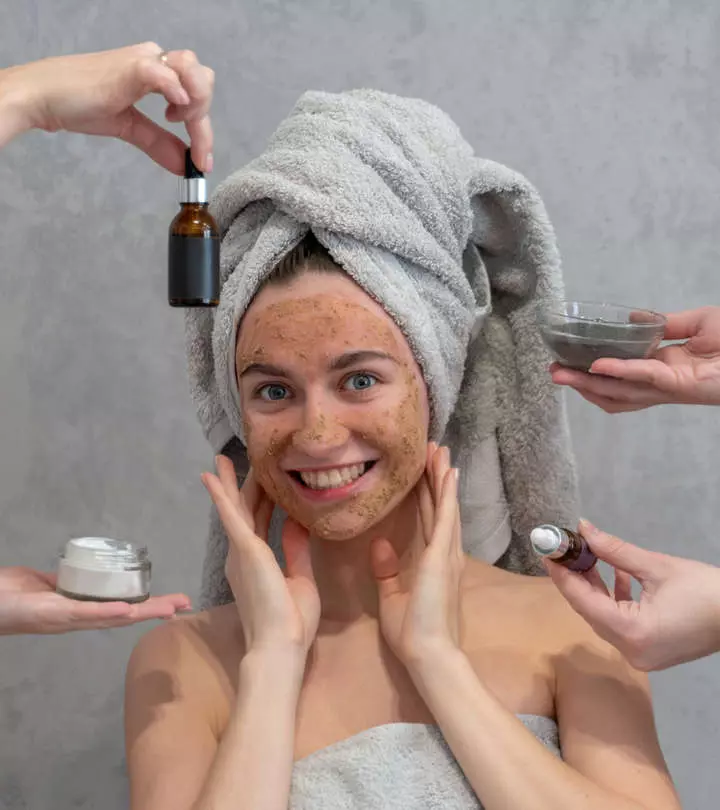
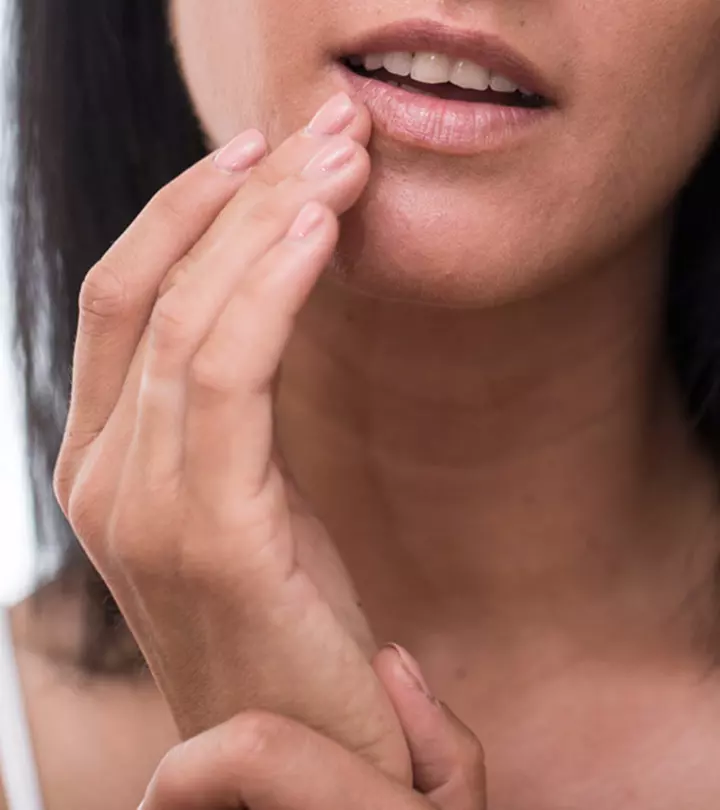
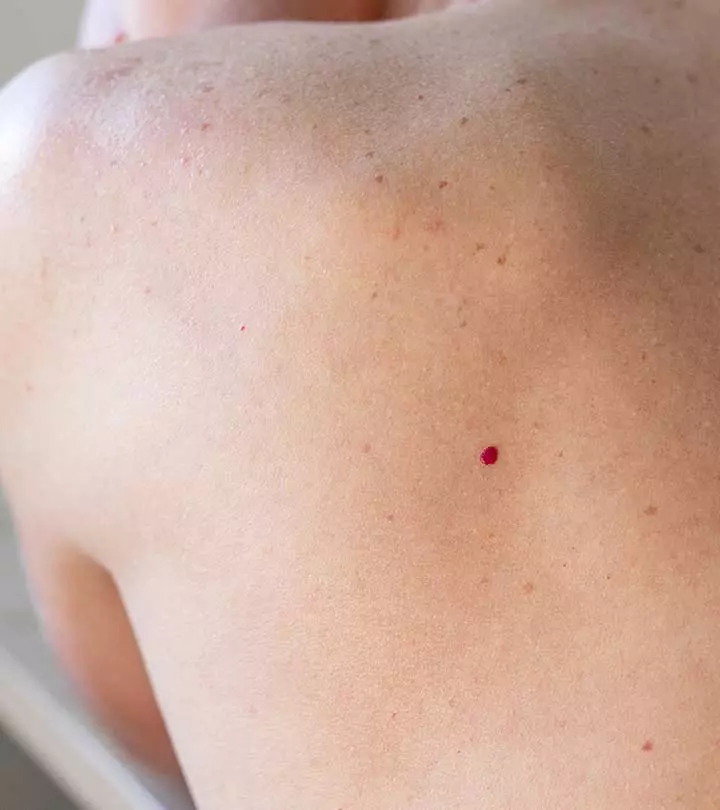

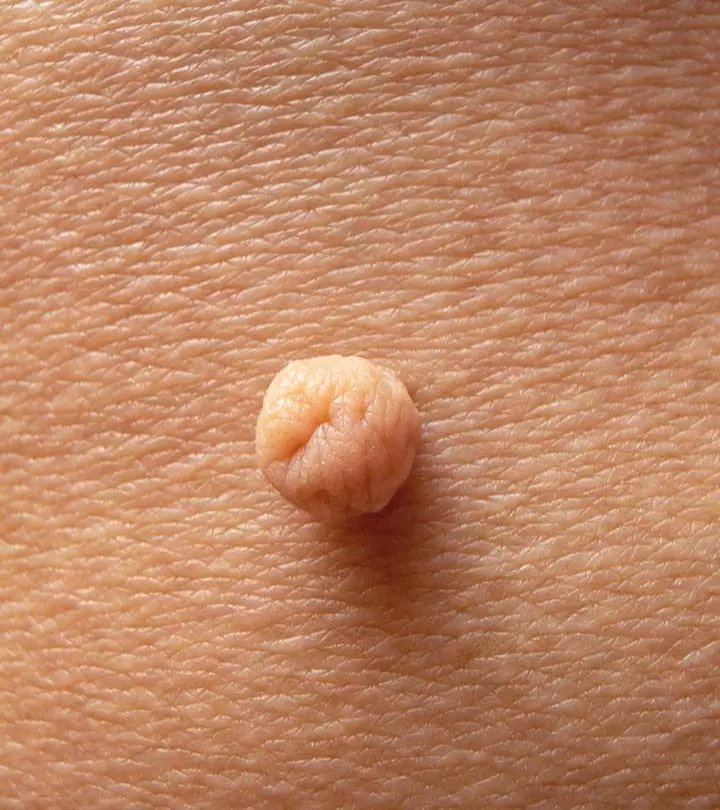
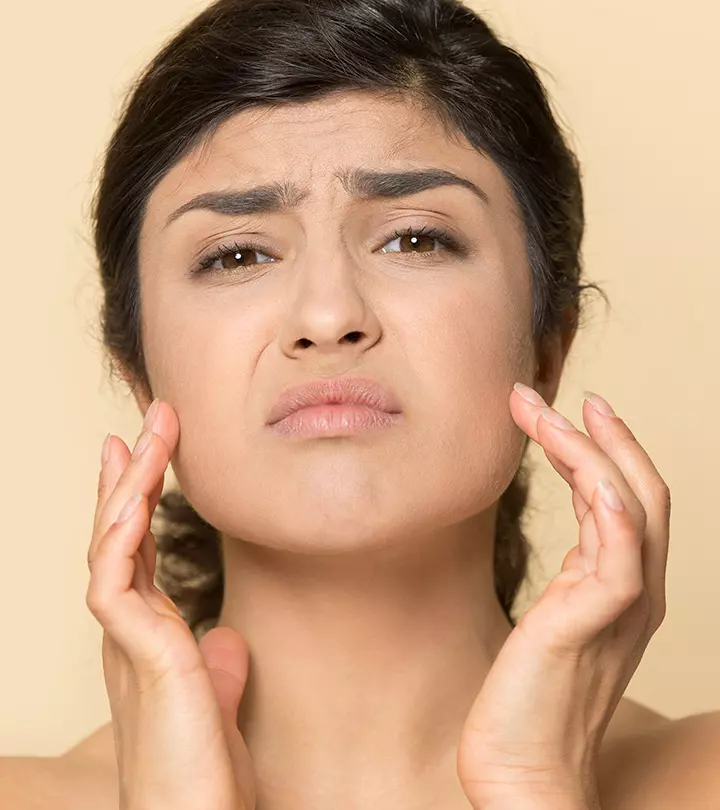

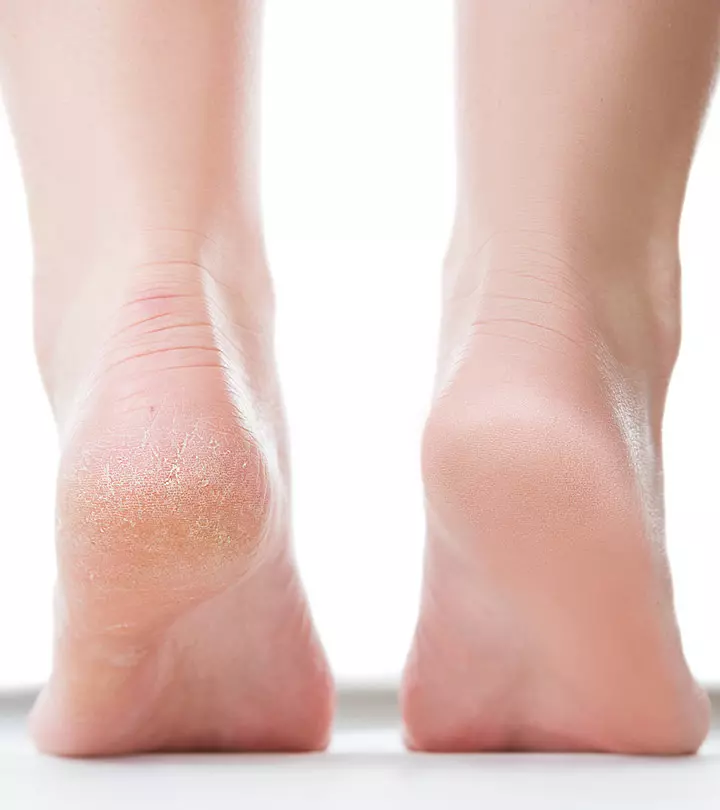
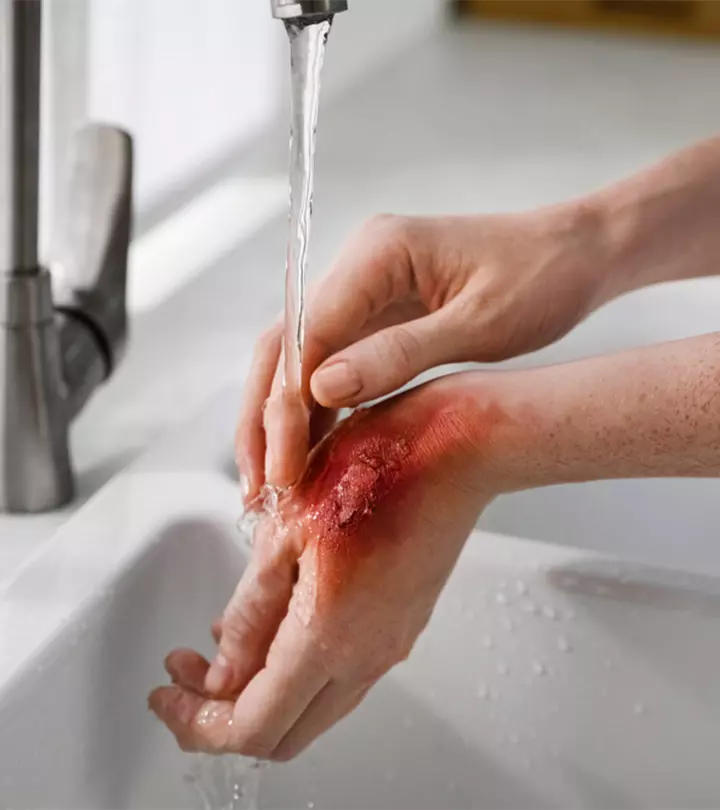
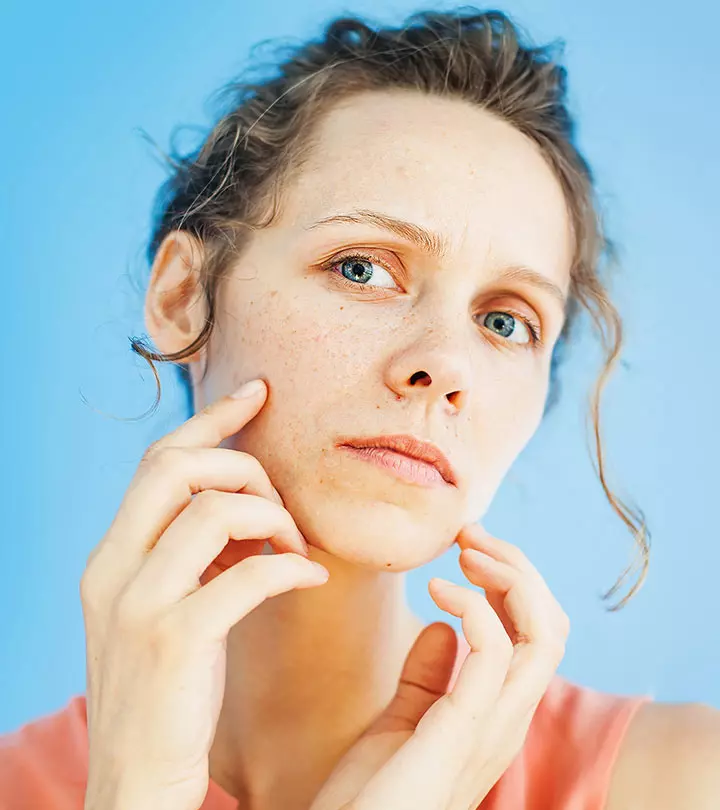
Community Experiences
Join the conversation and become a part of our empowering community! Share your stories, experiences, and insights to connect with other beauty, lifestyle, and health enthusiasts.